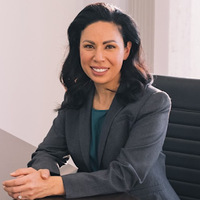Orange County Trademark Attorneys & Lawyers
How it Works

Seth Wiener

Lauri Donahue

Kanika Radhakrishnan

David Yamaguchi

Brig Ricks

Neil Park

Ali Shalchi

Eric Alspaugh

Rebecca London

Troy Krich
Orange County Trademark Lawyers
Why use UpCounsel to hire a Orange County Trademark Attorney?
Average experience
You always get experienced professionals and high caliber work.
Faster
Your work gets done quickly because professionals are always available.
More cost effective
We use technology to cut traditional overhead and save you thousands.
UpCounsel has been talked about in:
Legal Services Offered by Our On-Demand Orange County Trademark Attorneys
Our experienced Orange County trademark attorneys & lawyers represent individuals and businesses with everything they need to secure and protect their trademarks. Our attorneys can help individuals with everything from trademark clearance searches to determine whether the desired mark is available for adoption, use, and registration. By reviewing the search reports thoroughly, they can conclusively determine the extent to which a mark is already being used and the potential success of filing a trademark.
Trademark licensing can be complex, but our trademark attorneys have experience drafting agreements on behalf of both licensees and trademark owners - thus allowing you to capitalize on your valuable intellectual property. Our Orange County trademark attorneys can also draft and file your trademark with the United States Patent and Trademark Office (USPTO), including Intent to Use and Use in Commerce applications.
Our attorneys can also help protect your trademark around the globe by assisting clients with filing trademark applications under the Madrid Protocol, which allows trademark holders to obtain protection in multiple countries by filing a single application.
Improve Your Legal ROI with Affordable Trademark Attorneys that service Orange County, CA.
What Our Customers Have to Say
"UpCounsel gives me access to big-firm lawyers minus the big-firm price tag. I work with several attorneys on the platform and there are never surprises...I always receive quality legal work at competitive rates that larger firms simply cannot match."
"Every startup needs to know about UpCounsel. We found great attorneys at great prices and were able to focus our resources on improving our business instead of paying legal bills."
"Before UpCounsel it was hard for us to find the right lawyer with the right expertise for our business. UpCounsel solves those problems by being more affordable and helping us find the right lawyer in no time."
This is the most recent 20 reviews out of 886 reviews for Trademarks & Copyrights attorneys in California

Draft Response to USPTO Office Action (Trademark)
"I highly recommend Ross for anyone needing trademark assistance. He helped me file my Trademark Statement of Use. His expertise, attention to detail, and willingness to explain each step gave me complete confidence that everything was handled correctly. If you’re looking for an attorney who is knowledgeable, responsive, and truly committed to protecting your brand, Ross is an excellent choice."
Michelle R
.
San Ramon,
CA,
15 days ago
.jpg)
Trademark Response to USPTO Office Action Assistance Needed
"Baruch did a great job preparing and filing the Office Action response for my U.S. trademark. Communication was clear and the work was thorough. There was a bit of delay in response at times, but everything was completed smoothly in the end."
Hongxin L
.
Sacramento,
CA,
about 2 months ago

Register Trademark
"Clear and responsive, highly recommended!"
Steven W
.
Venice,
CA,
2 months ago

Conduct Trademark Search
"Working with Anthony was an excellent experience. He provided clear, detailed, and practical legal guidance on my trademark clearance and helped confirm that my brand was on the right path before launch. His explanations were easy to understand, timely, and very thorough. I truly appreciate his professionalism and the confidence his expertise gave me moving forward. Highly recommended."
Jose R
.
Ontario,
CA,
2 months ago

Assist with Copyright Infringement
"I worked with Lauri on an IP contract and a copyright issue. She is is very responsive and easy to communicate with, recommended."
Rachel L
.
North Hollywood,
CA,
3 months ago

Trademark Infringement Consults
"Eric is one of the best. In addition to his critical eye, he just gives good advice. He's a good add to the team!"
Ryan D
.
Oakland,
CA,
8 months ago

Trademark Registration Services
"Very quick and knowledgeable"
Elaine S
.
Moraga,
CA,
about 1 year ago

Register Trademark internationally through the Madrid Protocol
"David Lizerbram provided excellent legal support for my international trademark needs. He was knowledgeable, responsive, and made the complex process of securing trademarks in multiple countries smooth and manageable. I highly recommend his services for anyone needing expertise in international trademark law."
Alen S
.
Sunland,
CA,
over 1 year ago

Assist with Other Trademark & Copyright Matter
"An exceptional lawyer who is very knowledgeable, communicates effectively and devoted to securing favorable outcomes for cliens. I would definitely be coming back, highly recommended."
Amira C
.
Orange,
CA,
over 1 year ago

Assist with Copyright Infringement
"Troy is responsive, effective, and efficient!"
Tim D
.
Lake Forest,
IL,
over 1 year ago

Conduct Trademark Search
"Excellent work by Nathan. He was clear, helpful, knowledgeable, and thorough. Highly recommend."
Tom M
.
Duck Creek Village,
UT,
almost 2 years ago

Trademark Registration Services
"Clear communication and fast responses."
Paige H
.
La Habra,
CA,
about 2 years ago

Trademark Registration
"Very efficient"
Michael J
.
Redding,
CA,
about 2 years ago

Register Trademark
"Steven Stark did a great job with my trademark applications."
Daniel S
.
Los Angeles,
CA,
over 2 years ago

Register Trademark
"Excellent service, clear communication, good understanding. Thanks!!!"
Axay S
.
Diamond Bar,
CA,
over 2 years ago

Assist with Other Trademark & Copyright Matter
"We have consulted with Brig a number of times. Solid."
Gavin M
.
Hermosa Beach,
CA,
over 2 years ago

Draft Response to USPTO Office Action (Trademark)
"Had a job that required a quick turnaround, Charis delivered and did an amazing job!"
Michael H
.
Walnut,
CA,
almost 3 years ago

Trademark Registration
"Loved working with Liz on my Standard US Trademark Package. She was always communicative with any questions or concerns I had and provided prompt updates on the status of the trademark."
Brie B
.
San Francisco,
CA,
about 3 years ago

Trademark Registration
"This is the fourth time I have used his services. Very fast and communicative. Highly recommended."
Visual Design I
.
Los Angeles,
CA,
over 3 years ago

Trademark Registration
"Extremely informative and quickly responds to all my questions!! Thank you so much!"
Asha F
.
San Jacinto,
CA,
over 3 years ago
Related Articles
Key Takeaways
- A certification mark is a special type of trademark that certifies goods or services meet certain standards or originate from a specific region.
- Unlike a traditional trademark, the owner of a certification mark cannot use it; instead, it’s licensed to others who meet defined criteria.
- Certification marks play a major role in consumer trust, quality assurance, and fair competition by signaling compliance with safety, geographic, or quality standards.
- To register a certification mark, the applicant must show competence to certify, provide certification standards, and ensure nondiscriminatory access.
- Common examples include UL®, Woolmark®, Energy Star®, and
...
Read MoreKey Takeaways
- A Section 8 Declaration confirms a trademark is in commercial use five years after registration.
- A Section 15 Declaration claims “incontestable” status, offering stronger protection for your trademark.
- Missing the Section 8 deadline can result in trademark cancellation, but a 6-month grace period is available.
- Section 8 and 15 Declarations can be filed together to streamline the process.
- Common mistakes include submitting inaccurate goods/services descriptions and failing to update ownership info.
What is a Section 8 Trademark Declaration?
A Section 8 Trademark Declaration is a statement made to the United States Patent and Trademark Office (USPTO). It confirms your federal trademark has been in continuous use for five years. Those who fail to file their Section 8 Trademark Declaration on time will lose
...
Read MoreHow to Trademark a Clothing Brand Successfully
- 10 min read
Key Takeaways
- A trademark clothing brand includes a distinctive name, logo, and slogan used in commerce.
- Trademark protection for clothing is critical to establish brand identity and prevent infringement.
- Not all uses of a brand name on clothing count as trademark use; it must indicate the source of the goods.
- USPTO often rejects trademarks used
...
Read MoreKey Takeaways
- The supplemental register allows registration of descriptive marks that lack distinctiveness but may acquire it over time.
- Unlike the principal register, marks on the supplemental register do not receive presumptions of validity, exclusive rights, or incontestability.
- Benefits include the right to use the ® symbol, block confusingly similar marks, and file for international protection.
- Marks can later be moved from the supplemental register to the principal register once distinctiveness is proven.
- Businesses should avoid mistakes such as filing intent-to-use applications or assuming supplemental registration provides full legal protection.
...
Read MoreKey Takeaways:
- Trademark attorney costs vary widely, from $1,000 to $2,000 for basic trademark registration, while disputes and legal challenges can cost $300-$400 per hour.
- Filing fees with the USPTO range from $225 to $400 per class, depending on the type of application.
- Additional costs include Statement of Use
...
Read More